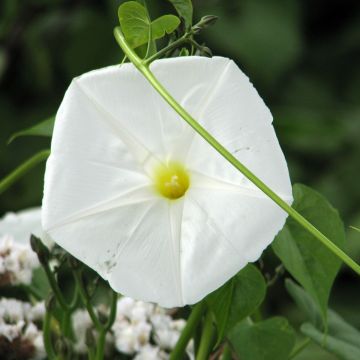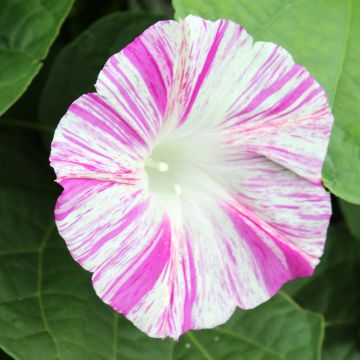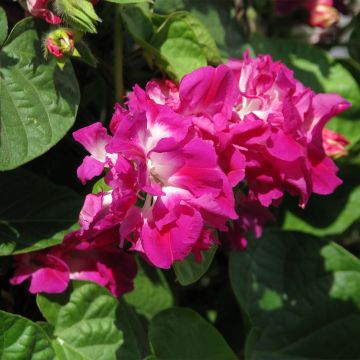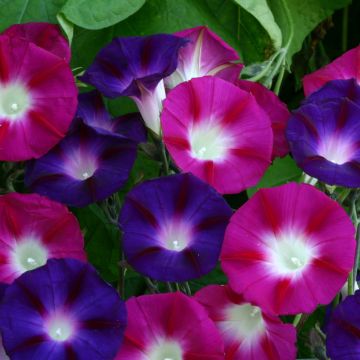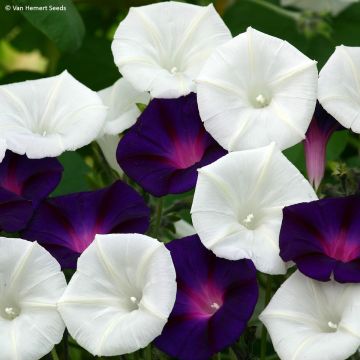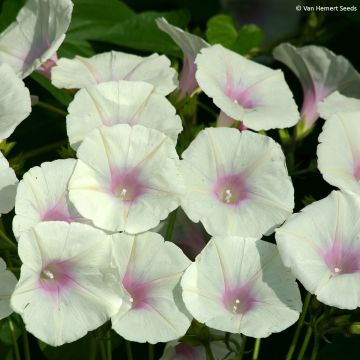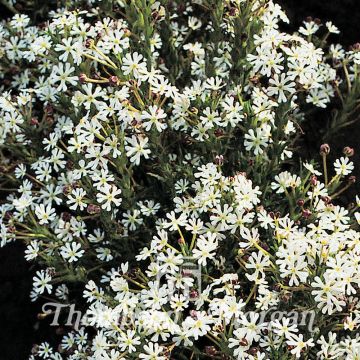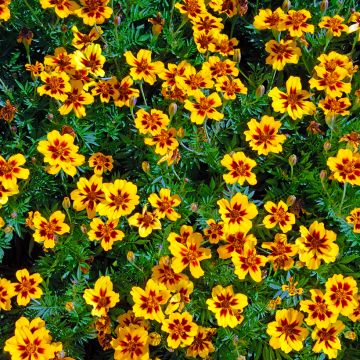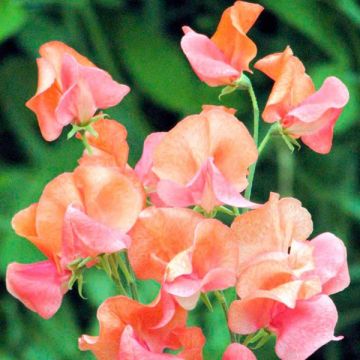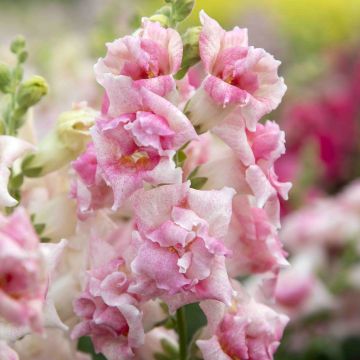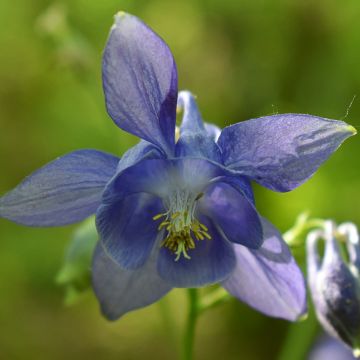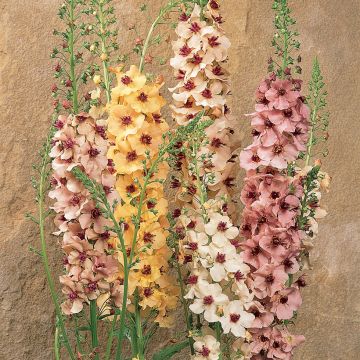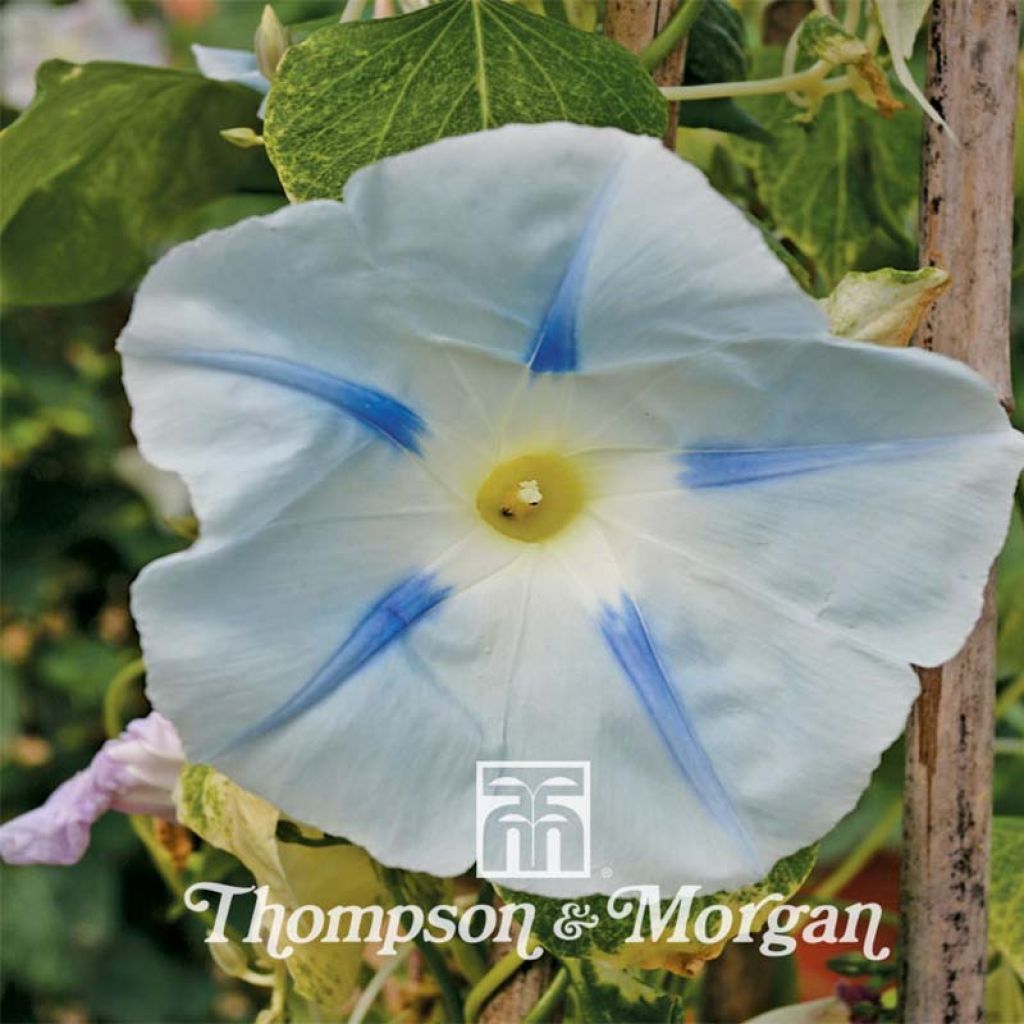

Ipomoea tricolor - Morning Glory Ismay Seeds
Ipomoea tricolor - Morning Glory Ismay Seeds
Ipomoea tricolor Ismay
Morning Glory, Volubilis
I have received your product and I will sow them in March 2019 as it is a bit late now. As for the delivery, nothing to say. We can see that you are serious and I thank you for that. I have received my order on time. Yours sincerely, Jean-Luc
Jean-Luc C., 10/08/2018
Special offer!
Receive a €20 voucher for any order over €90 (excluding delivery costs, credit notes, and plastic-free options)!
1- Add your favorite plants to your cart.
2- Once you have reached €90, confirm your order (you can even choose the delivery date!).
3- As soon as your order is shipped, you will receive an email containing your voucher code, valid for 3 months (90 days).
Your voucher is unique and can only be used once, for any order with a minimum value of €20, excluding delivery costs.
Can be combined with other current offers, non-divisible and non-refundable.
Home or relay delivery (depending on size and destination)
Schedule delivery date,
and select date in basket
This plant carries a 6 months recovery warranty
More information
We guarantee the quality of our plants for a full growing cycle, and will replace at our expense any plant that fails to recover under normal climatic and planting conditions.

Would this plant suit my garden?
Set up your Plantfit profile →
Description
Ipomoea tricolor 'Ismay' is an attractive selection that features large pale blue trumpet-shaped flowers, delicately brushed with a deep blue star. In one season, it sends out long, twining stems loaded with buds that burst into bloom against mid-green foliage. Morning Glory is ideal for ground covers or airy displays when grown up a support. It thrives in a warm, sunny, sheltered position in loose, cool soil.
Ipomoea tricolor, poetically named Morning Glory, is a very vigorous perennial climber that belongs to the Convolvulaceae family. It is native to tropical America, probably Mexico. This tuberous rooted plant is not cold-hardy and is often treated as an annual in colder climates. 'Ismay' produces 2 to 3 m long, twining stems that are quick to scramble up nearby supports. From July until the first frosts, it produces an abundance of funnel-shaped corollas, each measuring over 7 cm in diameter. Silky-smooth to the touch, they display light blue petals with a darker blue star and yellow-white throat. Although the delicate blooms open and close in the space of day, they are constantly replaced on the plant. The stems bear 5 to 10 cm, oval to heart-shaped leaves, occasionally three-lobed. Their mid green colour and satin-like sheen really sets off the brightly coloured blooms. Each plant produces about 100 seed pods, i. e. about 600 seeds at the end of the growing season, before the first frosts.
Ipomoea is a distant cousin of common bindweed. Although it is distinctly less cold-hardy, it is such an enthusiastic grower that it makes an excellent annual. It thrives in any well-drained garden soil in a warm, sheltered position. It combines well with other short-lived climbers such as sweet peas or nasturtiums. It eagerly scrambles over trellises, pergolas, arches, balcony railings, trees, shrubs and even other vines such as clematis and wisteria. If it can't find a support, it can be left to roam free on the ground. Morning Glory is ideal for hiding unsightly walls or dead trees. In milder climates, it self-seeds easily.
Report an error about the product description
Flowering
Foliage
Plant habit
Botanical data
Ipomoea
tricolor
Ismay
Convolvulaceae
Morning Glory, Volubilis
Cultivar or hybrid
Other Ipomoea seeds
View all →Planting and care
From May to June, sow the Morning Glory in open ground or in a large pot. Soak the seeds in a bowl of water for 24 hours before sowing to accelerate germination.
Make small holes 1 cm deep, spaced 50 cm to 1 m apart. Place 4 or 5 seeds in each hole, then cover them and water.
It takes 18 days to see the first shoots emerge from the ground.
To save time on flowering, you can sow in March-April in buckets at a temperature of 18°C, then transplant your plants in the garden after the last frost.
In summer, make sure your Morning Glories do not lack water as it would harm their beautiful flowering. Water preferably early in the morning or in the evening. Avoid hot locations, as the foliage wilts quickly and the heat dehydrates the plants. You can remove faded flowers so that the plant does not exhaust itself by producing seeds. Morning Glories are so fertile that the first seeds that fall to the ground can germinate very quickly and form new young plants before winter.
The soil should not be excessively rich in nitrates, as this would promote foliage growth at the expense of flowering. It should remain moist to support flowering.
Sowing period
Intended location
-
, onOrder confirmed
Reply from on Promesse de fleurs
Similar products
Haven't found what you were looking for?
Hardiness is the lowest winter temperature a plant can endure without suffering serious damage or even dying. However, hardiness is affected by location (a sheltered area, such as a patio), protection (winter cover) and soil type (hardiness is improved by well-drained soil).

Photo Sharing Terms & Conditions
In order to encourage gardeners to interact and share their experiences, Promesse de fleurs offers various media enabling content to be uploaded onto its Site - in particular via the ‘Photo sharing’ module.
The User agrees to refrain from:
- Posting any content that is illegal, prejudicial, insulting, racist, inciteful to hatred, revisionist, contrary to public decency, that infringes on privacy or on the privacy rights of third parties, in particular the publicity rights of persons and goods, intellectual property rights, or the right to privacy.
- Submitting content on behalf of a third party;
- Impersonate the identity of a third party and/or publish any personal information about a third party;
In general, the User undertakes to refrain from any unethical behaviour.
All Content (in particular text, comments, files, images, photos, videos, creative works, etc.), which may be subject to property or intellectual property rights, image or other private rights, shall remain the property of the User, subject to the limited rights granted by the terms of the licence granted by Promesse de fleurs as stated below. Users are at liberty to publish or not to publish such Content on the Site, notably via the ‘Photo Sharing’ facility, and accept that this Content shall be made public and freely accessible, notably on the Internet.
Users further acknowledge, undertake to have ,and guarantee that they hold all necessary rights and permissions to publish such material on the Site, in particular with regard to the legislation in force pertaining to any privacy, property, intellectual property, image, or contractual rights, or rights of any other nature. By publishing such Content on the Site, Users acknowledge accepting full liability as publishers of the Content within the meaning of the law, and grant Promesse de fleurs, free of charge, an inclusive, worldwide licence for the said Content for the entire duration of its publication, including all reproduction, representation, up/downloading, displaying, performing, transmission, and storage rights.
Users also grant permission for their name to be linked to the Content and accept that this link may not always be made available.
By engaging in posting material, Users consent to their Content becoming automatically accessible on the Internet, in particular on other sites and/or blogs and/or web pages of the Promesse de fleurs site, including in particular social pages and the Promesse de fleurs catalogue.
Users may secure the removal of entrusted content free of charge by issuing a simple request via our contact form.
The flowering period indicated on our website applies to countries and regions located in USDA zone 8 (France, the United Kingdom, Ireland, the Netherlands, etc.)
It will vary according to where you live:
- In zones 9 to 10 (Italy, Spain, Greece, etc.), flowering will occur about 2 to 4 weeks earlier.
- In zones 6 to 7 (Germany, Poland, Slovenia, and lower mountainous regions), flowering will be delayed by 2 to 3 weeks.
- In zone 5 (Central Europe, Scandinavia), blooming will be delayed by 3 to 5 weeks.
In temperate climates, pruning of spring-flowering shrubs (forsythia, spireas, etc.) should be done just after flowering.
Pruning of summer-flowering shrubs (Indian Lilac, Perovskia, etc.) can be done in winter or spring.
In cold regions as well as with frost-sensitive plants, avoid pruning too early when severe frosts may still occur.
The planting period indicated on our website applies to countries and regions located in USDA zone 8 (France, United Kingdom, Ireland, Netherlands).
It will vary according to where you live:
- In Mediterranean zones (Marseille, Madrid, Milan, etc.), autumn and winter are the best planting periods.
- In continental zones (Strasbourg, Munich, Vienna, etc.), delay planting by 2 to 3 weeks in spring and bring it forward by 2 to 4 weeks in autumn.
- In mountainous regions (the Alps, Pyrenees, Carpathians, etc.), it is best to plant in late spring (May-June) or late summer (August-September).
The harvesting period indicated on our website applies to countries and regions in USDA zone 8 (France, England, Ireland, the Netherlands).
In colder areas (Scandinavia, Poland, Austria...) fruit and vegetable harvests are likely to be delayed by 3-4 weeks.
In warmer areas (Italy, Spain, Greece, etc.), harvesting will probably take place earlier, depending on weather conditions.
The sowing periods indicated on our website apply to countries and regions within USDA Zone 8 (France, UK, Ireland, Netherlands).
In colder areas (Scandinavia, Poland, Austria...), delay any outdoor sowing by 3-4 weeks, or sow under glass.
In warmer climes (Italy, Spain, Greece, etc.), bring outdoor sowing forward by a few weeks.






























